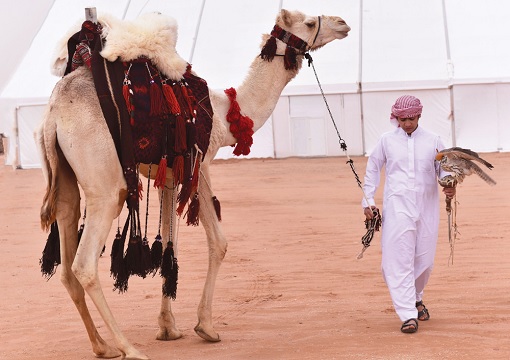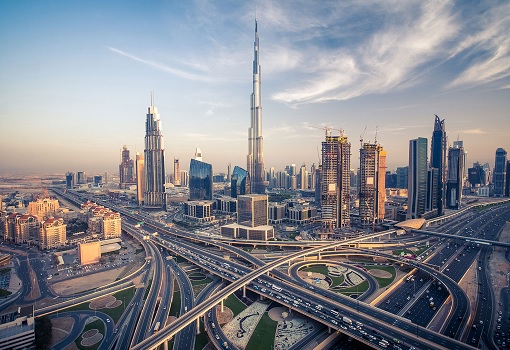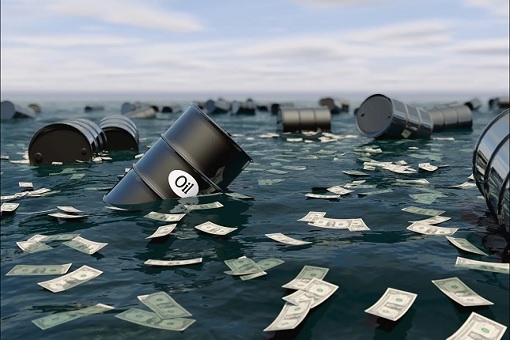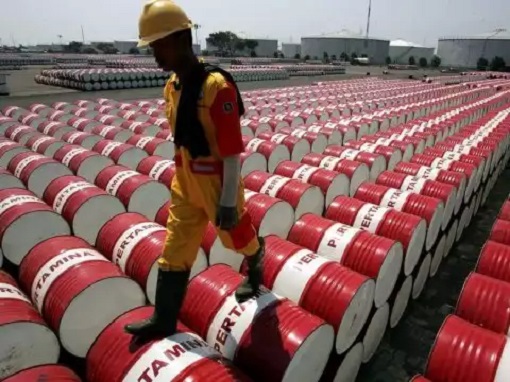Unlike the economy of Abu Dhabi, the big brother and richest emirate in the seven-emirate United Arab Emirates (UAE), Dubai’s economy is not directly dependent on oil. Dubai depends heavily on luxury real estate, tourism, logistics, and financial services for revenues. However, Dubai’s economy suffers indirectly when crude oil prices go south.
Surprisingly, despite a recovery in oil prices in 2018, Dubai’s economic growth had failed to take off in a meaningful way. Its economy grew by merely 1.9% in 2018, down from the 3.1% growth in 2017. Even though Dubai’s economy grew 2.1% in first half of 2019, businesses across Dubai were not optimistic. Already, they boastfully talked about an economic growth of 3.2% in 2020.
Whenever Dubai gets into financial troubles, it will always go to Abu Dhabi for help. During the 2008-2009 global financial crisis, it was oil-rich Abu Dhabi that came to the rescue of the state investment firm Dubai World. To ensure Dubai World did not default on its US$4.1 billion Islamic bond, Abu Dhabi bailed out the “too big to fail” investment arm with a cash injection of US$10 billion.

Clearly, Dubai is a classic example where no matter how diversified economy an emirate or Arab kingdom is in the region, all the oil-producing nations in the Middle East will continue to be dependent on oil. Hence, when oil prices drop like what is happening now due to Covid-19 coronavirus, the Middle East will struggle to meet its financial budgets.
Oil prices have already been depressed for months, weighed down by abundance of American supply and the US-China trade war. Even after OPEC had proposed to cut additional 500,000 barrels per day (bpd) on top of the existing 1.8 million barrels cut, which has been implemented since 2016, the crude oil prices refused to jump.
The China’s new Coronavirus epidemic, which has killed 2,004 people and sickened a total of 74,185 (as of Feb 18), threatens to plunge the commodity – the lifeblood of many Middle Eastern economies – to further lows. Now, a study of more than 72,000 confirmed and suspected cases carried out by Chinese scientists has revealed that the Covid-19 is more contagious than SARS and MERS.

The Chinese Center for Disease Control and Prevention confirmed that the mortality rate of the latest coronavirus is 2.3% (based on 1,023 deaths out of 44,672 confirmed cases). By comparison, SARS had a mortality rate of 9.6% during the 2003 outbreak, while MERS (which first reported in Saudi Arabia in 2012) has a case fatality of 35%.
The fast-spreading new strain of Coronavirus reminds the Arabs just how much they depend on China for business. More than 50 airlines have suspended flights to and from mainland China. As the nation shuts down, the increasingly isolated China also means a sudden falling consumption of 20% of oil – translating to about 3-million barrels per day.
Even a country as diversified as UAE requires crude oil price at least US$70 a barrel to meet its fiscal breakeven level, despite the fact that only 30% of the country’s economy depends on oil and gas. To make matters worse, the business hub of Dubai, which received close to 1-million tourists from China in 2019, could see the biggest impact due to virus-related travel restrictions imposed.

Analysts think if the virus epidemic continues beyond March, which seems increasingly likely based on the daily deaths report, the Gulf countries will be in deep trouble due to serious loss of oil demand. Some of the richest countries in the Middle East like Bahrain, Oman and Saudi Arabia would be badly affected as a result of the outbreak.
According to IMF data, Oman’s fiscal breakeven oil price is projected to be US$87.60 a barrel in 2020, while Bahrain’s is expected to be US$91.80 a barrel. Saudi, the OPEC cartel’s de-facto leader, badly needs an oil price to be US$83.60 a barrel to break even. Only Kuwait and Qatar have a very low breakeven oil price of US$54.70 and US$45.70 respectively.
The Brent Crude Oil is now trading at only about US$58.80 a barrel. S&P analyst Zahabia Gupta said Oman’s economic downside risks are higher this year because about 45% of Omani exports – mostly oil – go to China. In essence, Oman is the most exposed Gulf Arab states in the present crisis. Known as the “Switzerland of the Gulf” for tourists, Oman attracted 3.2 million tourists in 2018.

Bahrain, the Middle Eastern kingdom that has no personal income tax, has been trying to overhaul its economy with major reforms to diversify its economy from oil. Saudi Arabia, along with Kuwait and the UAE had to rescue Bahrain in 2018 with an injection of US$10 billion when a prolonged period of lower oil prices pushed its public debt to nearly 93% of annual economic.
Saudi Arabia’s fiscal deficit could hit 7.4% of gross domestic product (GDP) this year and rise to 8.1% in 2021, thanks to higher spending, lower oil prices and weaker economic growth. The kingdom, the biggest producer in the region and the world’s top oil exporter, continues to run massive deficits five years after the 2014-2015 oil price crash.
According to OPEC data, Saudi’s oil and gas sector accounts for about 50% of its gross domestic product (GDP), and about 70% of its export earnings. The Kingdom’s vast oil reserves are crucial for the lavish lifestyle of the House of Saud. Saudi feeds on average 1.7 million barrels a day – nearly a quarter of the kingdom’s exports – to the Chinese.

It appears that the so-called economic reforms to diversify the economy away from oil are too slow. In fact, it’s not an exaggeration to suggest that the structural reforms are almost non-existent, as the Arabs continue to hope for a rebound in the crude oil prices. And they are going to pay a heavy price for it. A Middle East financial crisis could explode within months.
Other Articles That May Interest You …
- Get Ready For US$40+ Oil Price – OPEC’s Plan To Cut An Extra 500,000 Barrels Fails To Stop Coronavirus Panic
- How China’s Disease Surveillance System Discovered The Coronavirus Within 1-Week Of Illness Reports
- Phase-1 Trade Deal Signed – But Here’re The Problems Both China And The U.S. Don’t Want To Tell
- Saudi Arabia Humiliated After Oil Facilities Attacked By Drones – If You Play With Fire, You Get Burned
- It’s Not Over Yet – Promised To Take The Necessary Countermeasure, China Could Target The U.S. Oil
- Oil Prices In Free Fall Despite OPEC Supply Cuts – Here’s Why It Could Get Worse
- Oil Prices Could Spike – Libya Plunges Into New Crisis Since The Overthrow Of Gaddafi
- Forget OPEC – These 3 Powerful Men Will Determine & Control The World Oil Prices
- Get Ready For $40 Oil – Crude Drops Like A Rock, Here’s Why America Holds The Key To Oil Prices
- BOOM!! – Crude Oil Prices Drop Spectacularly From Its $80 High, And Here’s Why It Will Continue To Fall

|
|
February 20th, 2020 by financetwitter
|


|

|

|

|

|

|
Comments
This is a none issue, and any economic downturn or even catastrophy should not be a problem for any Middle Eastern country.
Dubai (etc) has got Islam.
Islam has all the answers and directions and guidance for everything under the sun – or maybe, for all the suns (planets and stars) of the universe.
Chasing after any “brightness”, prospect, development, future, etc other than that prescribed by Islam is wrong.
All Middle Eastern countries should not engage in the kinds of nonsense that some of those Arab countries get into. Especially creating mirages out of their patches of sand.
Not just where there may be punishment from heaven like MERS, SAR, Covid19, locusts, etc, anything can cause those tall empty skyscrapers to collapse like errr sand-castles.
That’s simply because commercial hypes, scams, speculation ain’t the way of lslam. (Neither that so-called “Islamic banking”, btw)
I would humbly suggest camel herding, camel trading, maybe turning camel urine into a successful Coca-Cola. A friend of mine in Europe was a successful smuggler of camels from Somalia. He got so rich and so respected by the angmohs he never had to travel refugee express to reach Europe, but that’s another story.
Goat herding is also a great idea. It can also be a big success if done on big scale. By that I mean lowering costs and not for increased greed. Lower costs should also mean mutton etc becomes cheap. Of course, more goats and sheep can be abused but we can always get folks behind laws that protect animals than get them behind those animals.
So my take is there should be no worries if any Middle Eastern with those un-Islamic country with those “2020 visions” caused by exposure to too much sun, fail and collapse.
They are destined to collapse and disappear, anyway, the oil is fast running out, China is coming up with more than just coronavirus, it is on the horizon with great energy alternatives to oil.
If I may suggest another way out than bottling camel urine or making the women do all the work, it is get on the fast boat go as far as China to learn things, open your eyes, be impressed, be enlightened.
The Arabs used to go to China, I believe their holy book and holy folks told them to – till they got seduced by the West, its alcohol, women, gambling, shopping, general debauchery, haven to hide loot…
Hmmm… China may yet save those lost souls, Amen.
“India will not welcome the Arabs.”
The Arabs already had their use for Indians as their glorified slaves, anyway.
And Arabs do tend to think Indians stink, unfortunately…
So I don’t think them Arabs would want to park their camels in India – and considering, too, India, with that Gujarati door jagah as PM, is not all that chummy with Muslims.




























There’s no future for oil.
Gas might still have a future but the prospects would be modest.
The economies in the Middle East are unsustainable because they are artificial and dependent on oil and gas.
When the oil market stays south, these artificial economies will collapse.
Their populations are small and can’t sustain a consumer economy.
The Arabs should think of migrating to Central Asia, Sinkiang, Africa and Latin America.
Europe, Russia, North America, Australia and New Zealand will not take them.
India will not welcome the Arabs.